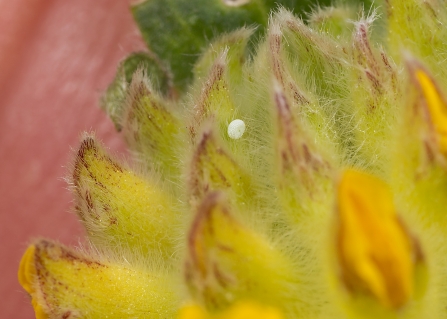Cupido minimus, the small blue butterfly, is easily overlooked, partly because of its size and dusky colouring, but partly because it's often confined to small patches of sheltered grassland where kidney vetch, its sole food plant, is found.
A rare species in Cambridgeshire, historically they were reasonably widespread on the chalk hills, but conversion to arable farming since the 1950s had a significant impact. By the early 2000s there were only a few reports from one or two colonies near Cambridge, then none after around 2004.
Fast forward a dozen years, and a couple were seen at another site near Cambridge in 2016 on private land (the status was of that colony was not well known). The colony at Trumpington Meadows were first sighted in 2018, but only a very few numbers, so the Wildlife Trust and Butterfly Conservation kept the news quiet to see how the colony did. A few more were seen in 2019, and this year they seem to be doing well, and in collaboration with Butterfly Conservation and county recorder Edward Pollard, the news is now made public.
Careful management of the grassland ensures that conditions are ideal for the species to thrive. The Trust's senior ranger at Trumpington Meadows, Becky Green says: “Our wildflower meadows were created using a specific seed mix, which included kidney vetch, the food plant of small blue caterpillars. These meadows are hay cut annually to ensure they stay in good condition, and we make sure we don’t cut too early and leave some areas over winter so we avoid disturbing the caterpillars which will be feeding throughout June and July. Kidney vetch is a short-lived perennial so we need to make sure it persists – we will monitor it and ensure it has the right conditions to set seed, if necessary by scarifying small patches of meadow on rotation. Making sure we have areas of longer grasses for the males to roost is also key!”
Edward Pollard says: "It is really exciting to let people know about this wonderful little butterfly. After so many years going unnoticed finding a new colony, and one so easily accessible to the public, is great news. Butterflies are a good indicator of the health of our environment, and this shows what a thriving, healthy nature reserve we have on Cambridge's doorstep."

